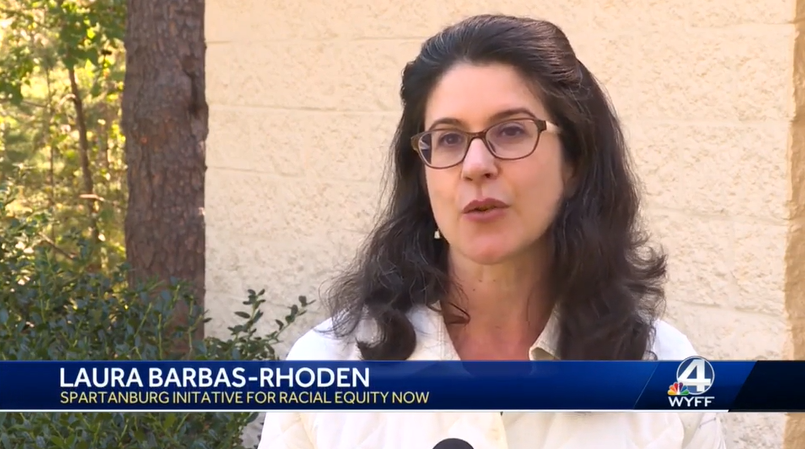SIREN alerts Spartanburg about the need for racial equity
Spartanburg Initiative for Race Equity Now, or SIREN, is an organization taking the reins of the push for racial equity in Spartanburg. The five-month-old organization has already taken initiative to speak at Spartan- burg City Council meetings and demanded apologies for the city’s “racist” past, according to the Spartanburg Herald-Journal.
“SIREN came together organically over the course of several months,” said founding member of SIREN, Jason Spencer.
“I looked at the Spartanburg Racial Equity Index as a starting point of sorts,” Spencer continued “As I began meeting and talking with people about this, I developed a friendship with Natalia Rosario, a planner with the city, who suggested we start a nonprofit. We are not a nonprofit yet, but that is a goal.”
However, the group had a rocky start due to the arrival of COVID-19. “We talked with like-minded friends and allies and were planning to launch in March 2020… but then COVID (sic) happened,” Spencer said.
“Many of the people originally involved got super busy, and what would become SIREN got put on hold. After George Floyd,” he said, “we couldn’t wait any longer. We held our first Zoom meeting on June 13 of this year and have met almost every Saturday since.”
Laura Barbas-Rhoden, professor of Spanish and member of SIREN, de- tailed what SIREN does in the community to work towards anti-racism.
“SIREN works to research issues, including listening deeply to community members and learning about commissions, councils, and processes; elevate anti-racist, equity-focused work, especially at the grassroots, and co-equip one another to work more effectively; communicate and share information; and engage more people in direct civic action, like speaking at public meetings, registering voters, mobilizing,” Barbas-Rhoden said.
“SIREN meets virtually as a collective,”she added. “Individual collaborators who feel comfortable attending and/or are able to attend public events with masks and distancing do so. Others work behind the scenes to support the work.”
Barbas-Rhoden also spoke on the challenges SIREN faces in Spartanburg as they continue their work, saying that, “expanding the circle alters dynamics that have become normalized and that some find comfortable. Naming the harms experienced by those made to be excluded historically, such as BIPOC residents, is also both difficult and important.”
“But only by naming the harms,” she said,“and reflecting on what produces them, can more of us work together to interrupt what produces them and to co-create possibilities here for more equity.”
Spencer also detailed some of the recent undertakings of SIREN, add- ing that, “we were heavily involved in pushing for the city’s apology reso- lution. While an apology only goes so far, we hope to use this as a benchmark that we can reference when pushing for more policy changes at the city level.”
“We’ve also spoken out on the need for some sort of oversight for the Spartanburg County sheriff and we are involved in the ongoing discussion about the old Mary H. Wright school on Spartanburg’s south side.”
Spencer provided some information on how people interested in participating can join. “We have a fairly open-door policy, though we do ask newcomers to fill out a quick membership form. It’s designed to gauge
whether people are willing to volunteer at events we’re participating in or speak out, or at least show up, at public meetings where we hope to have an impact — we want to know that people interested in joining SIREN have skin in the game.”
For more information, Spencer can be found on Facebook and LinkedIn @jasontspencer.






























